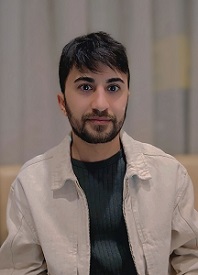| Tue. July 01, 2025 | |

|
|
|
 By Saad Al Halabi In a world shaped by shifting alliances and strategic ambiguity, truth has become a casualty and trust a fragile commodity. The line between victim and perpetrator blurs increasingly, as those once condemned for their crimes re-emerge as supposed agents of stability. But what happens when those seated at political negotiation tables are the very individuals responsible for unspeakable violence? What does it mean when a former executioner is rebranded as a statesman? These questions trouble our collective conscience: Should we maintain trust in the decisions of world leaders, or has the time come for a decisive withdrawal of confidence? Can pragmatism still justify embracing those with violent pasts, or are we witnessing a dangerous moral collapse? Once a fugitive lurking in the shadows with blood on his hands, Abu Mohammad al-Julani now appears as an invited guest at diplomatic forums, repackaged as a potential partner in peace and governance. The figure once feared for brutality has become, in the eyes of some, a necessary evil—a geopolitical convenience. But as the Arab proverb warns, “The jar does not always escape unbroken.” Mistakes in this domain are not equal, and this one approaches the magnitude of betrayal: betrayal of lives, memory, justice, and those who trusted the world to protect them from the ideology now embraced. Terrorism remains an unpredictable and merciless force, striking civilians without warning or justification. It leaves wounds no words can heal and grief that silence cannot comfort. Exploiting sacred beliefs, it tramples every moral and humanitarian value. Since the early 21st century—most notably after September 11—Islamist extremist groups have been responsible for some of the deadliest violence worldwide. Al-Qaeda orchestrated 9/11, claiming nearly 3,000 lives and continued operations in Iraq, Yemen, Kenya, and Indonesia. ISIS, between 2014 and 2019, caused tens of thousands of deaths, including over 13,000 civilians in Iraq and thousands more in Syria and beyond. Groups like Jabhat al-Nusra and its successor Hay’at Tahrir al-Sham have left similarly brutal legacies marked by massacres, abductions, and targeted killings.
In Europe, attacks inspired by such ideologies killed hundreds between 2015 and 2020, scarring cities like Paris, Brussels, and Manchester. In the U.S., beyond 9/11, attacks in Orlando and San Bernardino exposed the enduring reach of extremist narratives. Africa’s Boko Haram and Al-Shabaab have devastated communities with casualty numbers in the tens of thousands. These victims were not soldiers; they were children, journalists, teachers, worshipers. Terrorism is not merely a geopolitical threat—it assaults the essence of human dignity. For many in Europe, the political embrace of former extremists feels like a profound betrayal—not only of history but of the democratic values once cherished. Governments believed their institutions would protect them from such chaos, but recent developments have shaken that belief. Voices across the continent ask: How can trust be placed in a man who once brought terror to our cities and sanctuaries? How can credibility be extended to someone whose past is defined by violence, without accountability or remorse? When diplomacy reached toward Julani, many saw not a handshake but a severing of trust between leaders and their citizens. Al-Julani’s trajectory is one of calculated transformation. From early ties to Al-Qaeda, imprisonment by the U.S. and Iraq, to founding Jabhat al-Nusra, his path is marked by violence and extremism. Though he publicly distanced himself from Al-Qaeda, he merely rebranded as Hay’at Tahrir al-Sham, maintaining the same structures of control and fear. His adaptability ensures political survival, gaining legitimacy without reckoning with his past. As former U.S. ambassador Robert Ford noted, Julani has never sincerely apologized for atrocities under his leadership. Perhaps he doesn’t need to—because in today’s political climate, even the bloodiest legacies can be obscured by optics. Why do some advocate supporting Julani? Crown Prince Mohammed bin Salman and others claim he represents Syria’s best political solution—able to control extremist factions and manage weapons. But is this claim justified? Barely four months after Julani and backers seized power under the “Interim Government,” chaos erupted. Killings surged unchecked. The Interior Ministry praised perpetrators for their “zeal for the Prophet,” ignoring atrocities. Julani dismissed these acts as “individuals outside government control,” undermining his legitimacy. Contradictory statements from Julani, his Interior Minister, and military leaders reveal internal disarray, confirming they operate as militias lacking political legitimacy. Some admire Julani’s combat skills—as former President Trump did—but can these outweigh his terrorist legacy? Others argue that supporting Julani aims to create a safe environment for returning Syrian refugees. Is this realistic? Given kidnappings, enslavement, grieving families, and sectarian violence, Syria under Julani will likely trigger fresh waves of emigration. Humanitarian pleas for second chances ignore history’s lessons: Osama bin Laden, once a Western ally, masterminded 9/11; Abu Musab al-Zarqawi, freed from prison, founded Al-Qaeda in Iraq and incited sectarian slaughter; Abu Bakr al-Baghdadi, freed from Camp Bucca, established ISIS and unleashed carnage. When terrorists assume leadership, humanity faces a dire reckoning. This is no hyperbole but a sober reading of modern history. Absolving Julani of his bloodstained hands issues a new birth certificate for terrorism. Political miscalculation here is a crime that costs civilian lives and legitimizes extremism. Withdrawing trust from those leading us toward this abyss is not a choice; it is a human duty. Unless urgently corrected, the world will soon regret its silence. Saad Al Halabi is a novelist, poet, and writer of short stories. He participates in cultural and literary initiatives, including Literally Peace and Tafakur Forum. He is also a regular contributor to The Samos Chronicles.
|
|
| Contact Us | About Us | Donate | Terms & Conditions |
|
All Rights Reserved. Copyright 2002 - 2025
